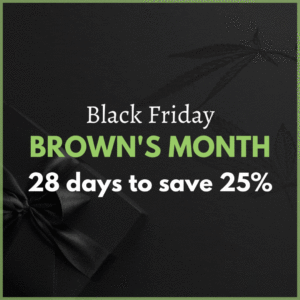New research says CBD may not reduce the negative effects of THC in cannabis, despite previous studies suggesting otherwise.
A new study from King’s College London has found no evidence that cannabidiol (CBD) reduces the potential negative effects of cannabis.
The research, published in Neuropsychopharmacology, challenges the commonly held belief that using cannabis that contains higher levels of CBD protects the user from psychotic experiences and memory problems, and suggests that this should be considered by policy makers currently exploring the topic of medicinal and recreational use.
Forty six healthy volunteers took part in a randomised, double-blind trial.
Over the course of four experiments, each participant inhaled cannabis vapour containing 10mg of THC and a differing level of CBD (0mg, 10mg, 20mg, or 30mg).
They then completed a series of tasks, questionnaires and interviews designed to measure the effect on their cognitive abilities, severity of psychotic symptoms, and how pleasurable the drug was.
The same research team had previously found that pre-emptively taking a high dose of CBD in a capsule a few hours before using cannabis may reduce the adverse effects of THC.
In this study, they explored the effect of altering the CBD:THC ratio in cannabis.
However, they found increasing the dose of CBD did not significantly change the effects of THC on cognitive performance, psychotic symptoms or how pleasurable the drug experience was.
CBD may not be a buffer against adverse effects
Dr Amir Englund, a research fellow at King’s IoPPN and the study’s lead author said: “None of the CBD levels studied protected our volunteers from the acute negative effects of cannabis, such as anxiety, psychotic symptoms, and worse cognitive performance.
“It also did not change the quality of the intoxication in any way. The only effect of CBD we saw was that as the concentration of CBD increased, the more the participants coughed. We asked volunteers to listen to a favourite song on each visit and taste a piece of chocolate. Although cannabis increased the pleasurability of music and chocolate compared to when volunteers were sober, CBD had no impact.”
“THC and CBD are both produced from the same compound in the cannabis plant, so a variety which produces higher amounts of CBD will naturally be lower in THC.
“It may still be safer for users to choose cannabis with higher CBD:THC ratios, but that’s because the same amount of cannabis will contain less THC than a lower CBD:THC variety. Overall, our advice to people wanting to avoid the negative effects of THC is to use less of it.”
Professor Philip McGuire, the study’s senior author and former head of the Department of Psychosis Studies at King’s IoPPN added: “These findings make an important contribution to the ongoing debate around the risks of cannabis use. While CBD on its own is known to have a number of positive effects in humans, our data suggest that, at the doses that are typically present in cannabis, it does not protect against the negative effects of THC. This challenges the commonly held view by many cannabis users that cannabis with a higher CBD content provides a buffer against the adverse effects of cannabis.”
Conflicting research
These new findings are at odds with previous research which has suggested that consuming cannabis which contains more CBD, or equal ratios of THC and CBD could offset some of the adverse effects of THC, such as anxiety and feelings of paranoia.
Last month Cannabis Health reported on a clinical trial in which Dutch investigators examined the effect of single doses of vaporised cannabis containing high-THC, CBD and a balance of THC and CBD on anxiety levels.
Hutten and colleagues collected perceived anxiety levels in 26 participants who vaporised cannabis samples that were either high in THC (13.75 mg), high in CBD (13.75 mg), contained equal amounts of both, or that contained no cannabinoids.
Both the THC-dominant and balanced THC/CBD samples significantly increased self-rated state anxiety compared to the placebo group.
However, anxiety after THC/CBD was significantly lower than after consuming THC alone.
The researchers reported: “Combined treatment of THC and CBD delayed the onset of … anxiety, reduced its magnitude and shortened its duration compared to inhalation of THC alone.”
Important differences
Cannabis Health spoke to Professor of pharmacology Saoirse O’Sullivan, to find out how two studies could have produced such contradictory results.
She pointed out a number of differences between the two trials which could be overlooked to the untrained eye.
The Hutten study – where CBD reduced anxiety – was carried out on recreational consumers, whereas Englund’s looked art infrequent users, therefore the participants will have different endocannabinoid expressions.
The studies also measured different endpoints, with Hutten’s looking mainly at anxiety, while Englund and colleagues examined a wider range of potential side effects including psychotic symptoms and cognitive, subjective, pleasurable, pharmacological and physiological effects.

Saoirse O’Sullivan, PhD, professor of pharmacology
The Englund study also records higher peak concentrations or ‘doses’ of THC and CBD than the Hutten study, Professor O’Sullivan points out. This could be due to different vaping devices being used, or differences in the study participants. It is also unclear whether the methods for measuring the concentrations of the compounds are consistent across the papers.
“As often is the case when comparing scientific studies, the devil is in the detail, and comparing the methodology of these two studies show important differences,” Professor O’Sullivan commented.
“The use of frequent cannabis users in one study could be important because the responses to cannabis are well known to be altered in regular users. The studies also measure different endpoints, so a direct comparison is not possible. Another major difference is in the drug exposure, subjects in the Englund study have much higher plasma levels of both THC and CBD.”
She added: “Therefore whilst appearing contradictory, there are important differences between the two studies that may explain the differences in findings.”
Impairment v enjoyment
What both studies seem to agree on is that high THC doesn’t always make for a better ‘high’.
A new paper by Dr Ethan Russo and colleagues, published earlier this month, came to the conclusion that aroma was more important than THC potency when it comes to having a positive experience with inhaled cannabis flower.
Researchers found a negative association between the amount of cannabis consumed and overall appeal, with those who consumed smaller amounts reporting a greater appeal.
‘Impairment and enjoyment are unrelated phenomena,’ the authors wrote.
‘High-THC cannabis may cause people to feel high, but high-THC cannabis is not always enjoyable.’
- Four new medical cannabis studies to catch-up on
- How to mitigate the side effects of cannabis
- How Covid-19 has impacted Britain’s sleep
- Finding the right balance: the benefits of mixing THC and CBD flower
- Why you should choose cannabis based on smell, not THC levels – study
The post Does CBD reduce the negative effects of THC? ‘The devil is in the detail’ appeared first on Cannabis Health News.


